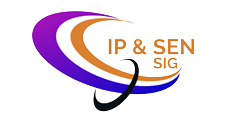Summer is an ideal opportunity for parents and children with special educational needs to relax, reflect on the past school year, and celebrate their achievements. It is also a time to develop new skills and set goals for the upcoming year.
Thoughtful summer planning ensures that both parents and children feel comfortable and engaged. The following strategies can help make the transition into the summer break and back to school smooth and enjoyable.
Read part 2 of our tips for SENny holidays to fully enjoy summer!
IP SEN SIG Team 🙂
Specific Tips for ADHD
Physical Activity:
– Plan outings to parks, pools, or organize sports games. Even short bursts of exercise can make a big difference.
– Activities like martial arts, dance classes, or gymnastics provide a structured outlet for energy.
– Plan a mix of structured and unstructured activities to keep things interesting.
– Set a few achievable summer goals together, like learning a new skill or completing a project.
Specific Tips for Autism:
Prepare for Changes:
– Prepare your child for changes in routine or environment, such as summer camps, by discussing them in advance and visiting the location beforehand.
Research and Packing:
– Research the place you will be visiting to ensure it meets your child’s needs.
– Pack items that help them stay calm, like noise-canceling headphones, a weighted blanket, or fidget toys.
– Take favorite snacks and familiar clothing to minimize discomfort.
Specific Tips for Visual Impairments
Choosing a Hotel:
– Ask for detailed descriptions of the hotel, including accessible services like tactile signage, assistive listening devices, and Braille menus.
– Request a room closer to the lift with easy access to the pool or beach.
Travelling:
– Use an accessible website to buy tickets and plan travel. Opt for bright or reflective luggage, big tags, and luggage trackers to prevent loss.
– Book car services in advance and use navigation apps like BlindSquare or Moovit.
Engage in Multisensory Activities:
– Plan activities that engage multiple senses, like nature walks or hands-on activities such as fishing or paddle boating.
– Use sensory materials at home to develop imagination and play games.
Avoid Sensory Overload:
– Limit exposure to noise and strong stimuli by avoiding crowded places and having a safe retreat.
Specific Tips for Dyslexia
Reading Activities:
– Keep up with reading by bringing your favorite books or comics. Read together, especially books related to your travel destinations.
Word Games:
– Play games like Scrabble or word memory games to enhance phonological and decoding skills.
Summer Journal:
– Create a summer journal with your child, using a diary, comic strip, or mind map. This can be a short daily activity where your child can write a few lines about their day and maybe add a drawing as well. You might need to help organize their ideas and, sometimes, do part of the writing yourself.
By following these tips, parents can ensure a fulfilling and enjoyable summer for their children with special educational needs.
Summer is about fun and relaxation. But also about building your skill set and doing fun and engaging activities.
Keeping your child occupied with deliberate activities, sharing your time with them and celebrating their accomplishments will enhance their skills as well as their self-esteem.
Resources:
https://www.autism.org.uk/what-we-do/holidays-and-days-out/holidays
https://www.aaa.com/tripcanvas/article/blind-travel-CM768
https://www.thriveautismcoaching.com/post/how-to-enjoy-the-holidays-as-an-autistic-adult
http://www.jazyky-bez-barier.cz/english
https://www.positiveaction.net/blog/teaching-special-education-strategies


Comments are closed.